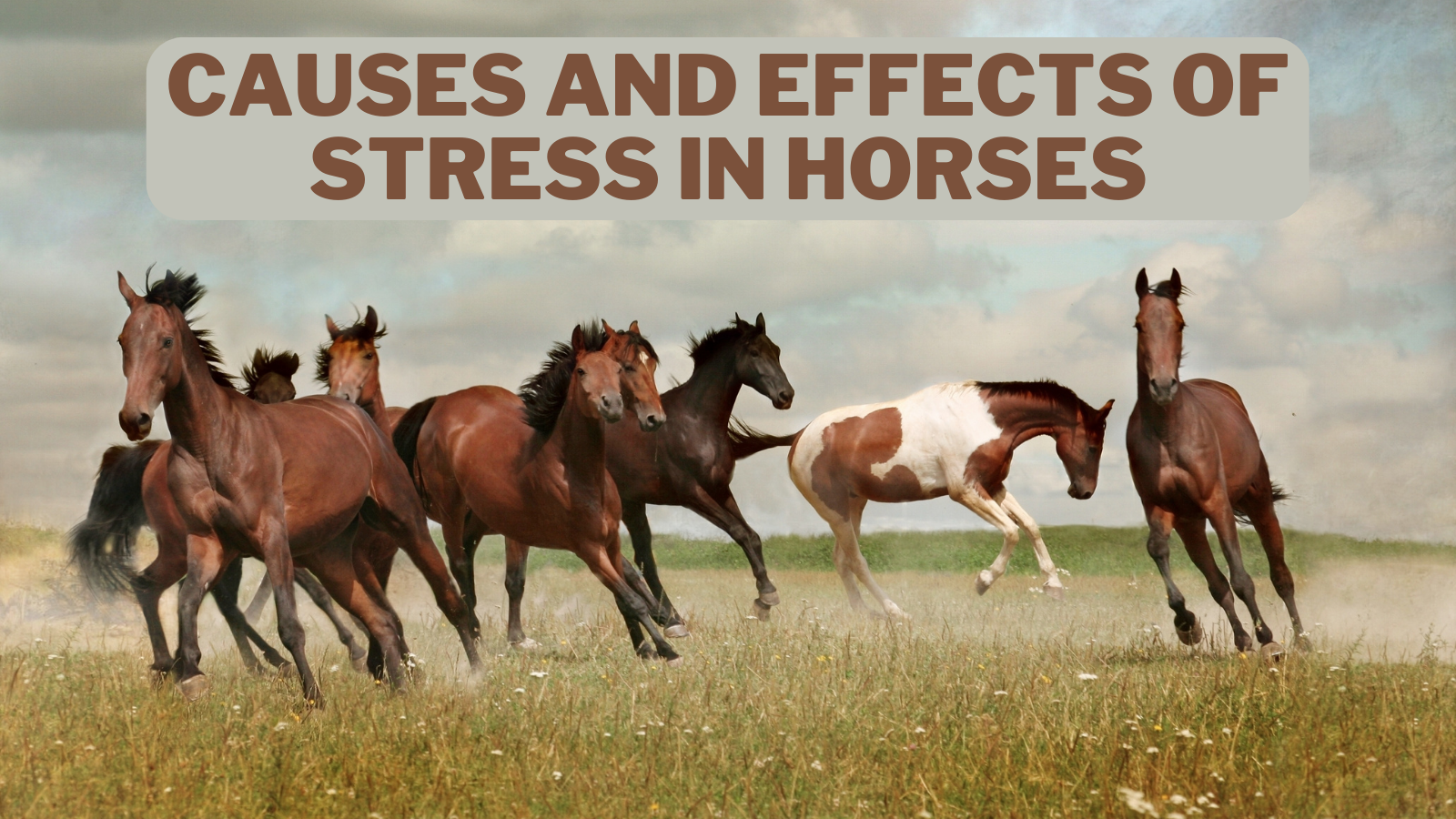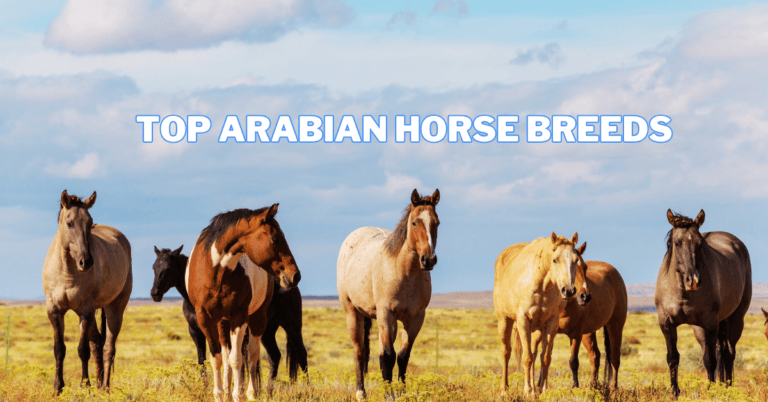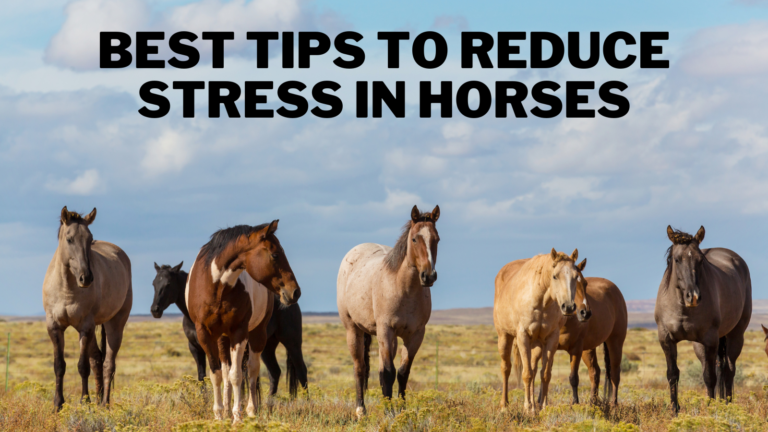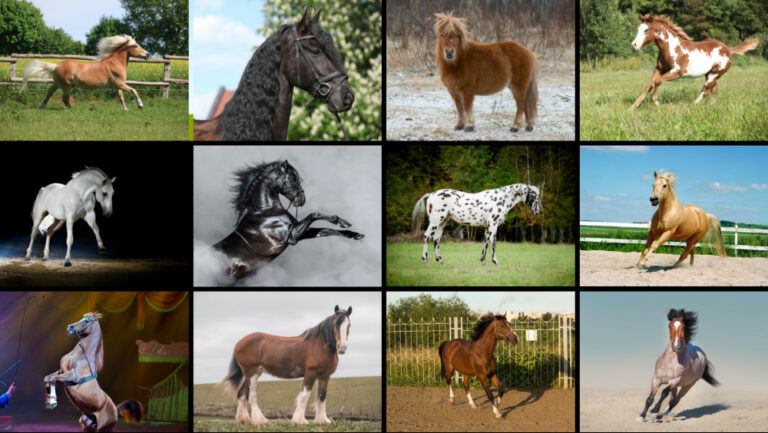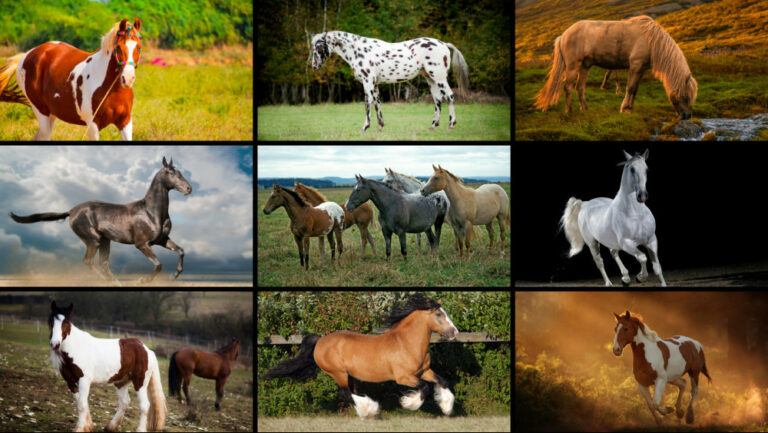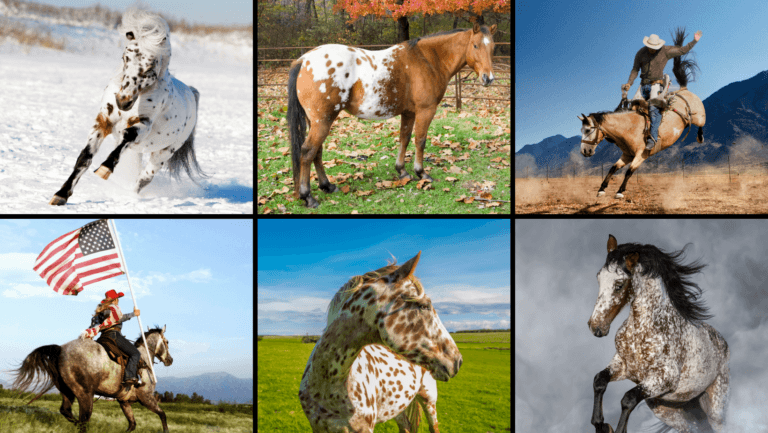Causes And Effects Of Stress In Horses
Causes And Effects Of Stress In Horses
Horses, like humans, can experience stress due to various factors in their environment and daily routine.
Stress can negatively affect a horse's physical and mental well-being, potentially impacting their performance, behaviour, and overall quality of life.
As a responsible horse owner or caretaker, it is essential to understand the causes and effects of stress in horses to identify and manage potential sources of stress and provide the best possible care for our equine companions.
In this blog, we will explore the common causes of stress in horses and the effects it can have on their health and behaviour.
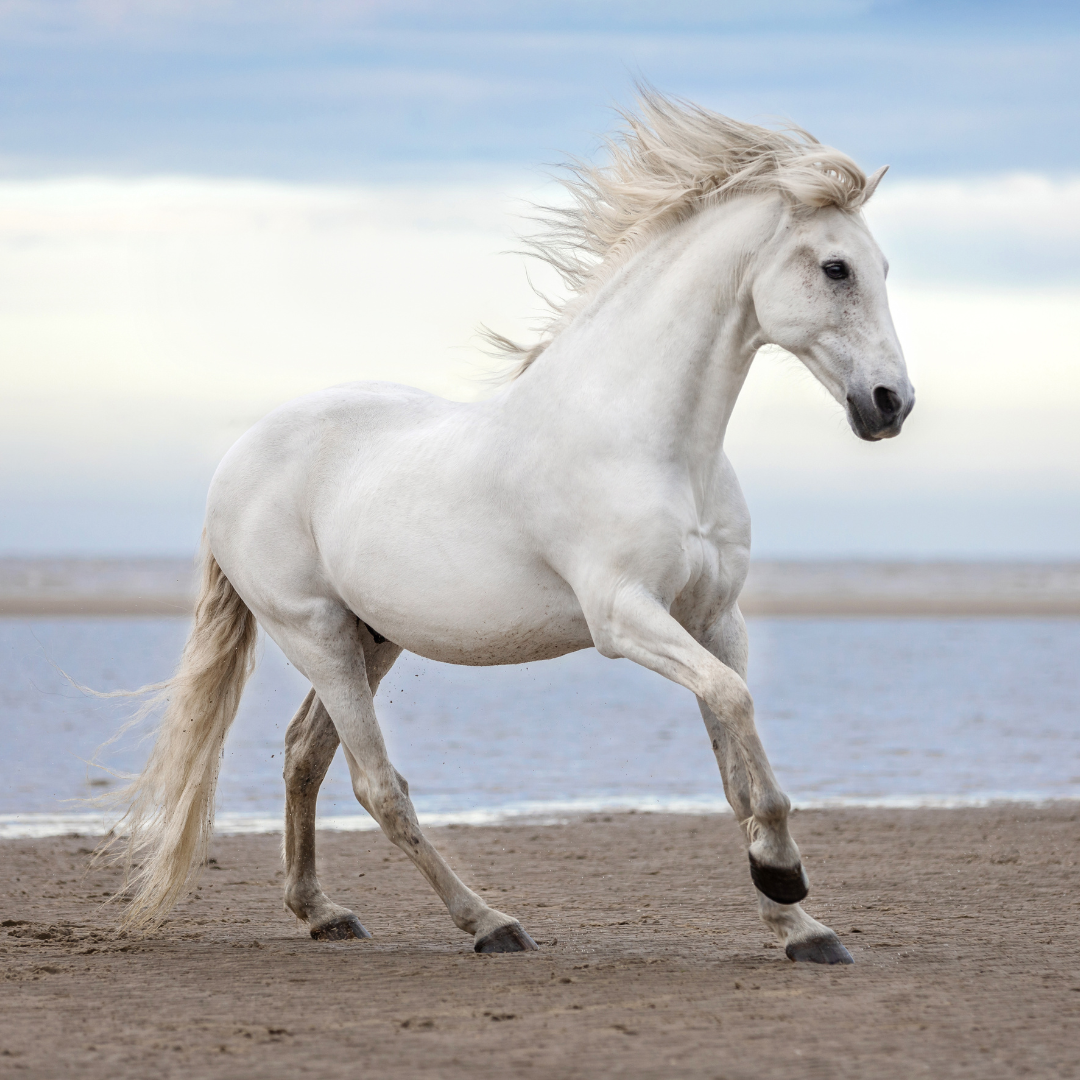
What Is Stress In Horses?
Stress in horses refers to physical or emotional tension when a horse is exposed to a challenging or threatening situation.
Stress can arise from various factors, including changes in the horse's environment or routine, social interactions with other horses, physical discomfort or pain, and exposure to loud or sudden noises.
When horses experience stress, their bodies release stress hormones such as cortisol and adrenaline, which can negatively affect their physical and mental health.
Chronic stress can lead to various health problems, including colic, ulcers, laminitis, and compromised immune function.
It is important to provide horses with a safe and predictable environment, appropriate socialization opportunities, a balanced diet, and regular exercise to prevent and manage stress.
It is important to work closely with a veterinarian and equine behaviour specialist to identify and address any underlying health or behavioural issues contributing to stress.
There are several types of stress that horses may experience, including:

1. Acute Stress In Horses
This is a sudden, intense response to a perceived threat or danger. Loud noises, sudden movements, or other unexpected events can cause acute stress.
2. Chronic Stress In Horses
This is a long-term state of stress that persistent or recurring stressors, such as social isolation, inadequate nutrition, or physical discomfort, may cause.

3. Environmental Stress In Horses
This is stress caused by changes in the horse's environment, such as a new stall or pasture, changes in routine, or exposure to unfamiliar objects or sounds.
4. Social Stress In Horses
This is stress caused by interactions with other horses, such as bullying or isolation from the herd.

5. Training Stress In Horses
This is stress caused by the training process, such as being pushed too hard or fast or being exposed to unfamiliar training techniques.
6. Transport Stress For Horses
This is stress caused by travelling in a trailer or other vehicle, which can be uncomfortable, noisy, and disorienting for the horse.
7. Performance Stress
This is stress caused by competition or other performance-related events, which can be physically and mentally demanding for the horse.
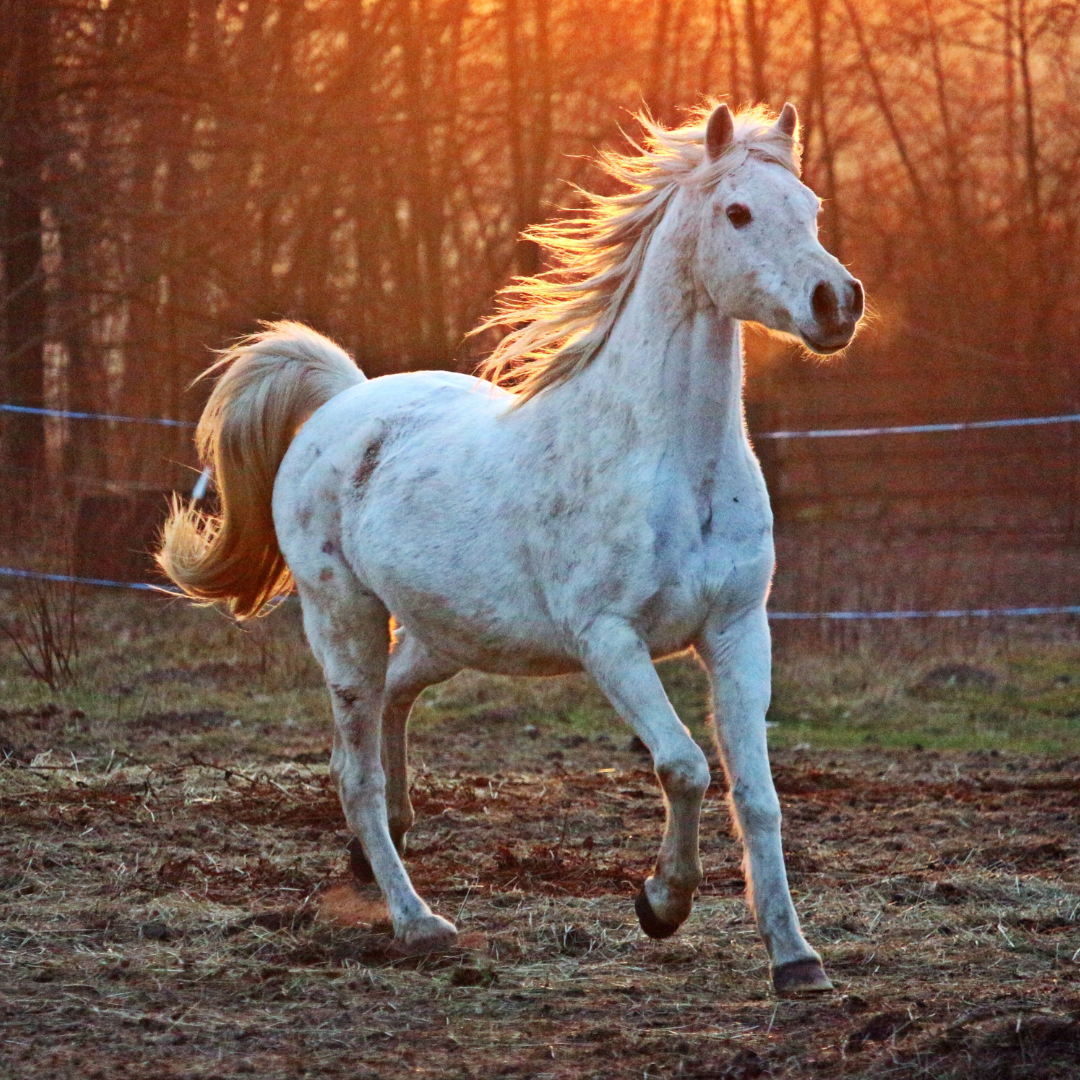
Causes Of Stress In Horses
1. Environmental Factors
It can significantly impact a horse's well-being, and sudden environmental changes can cause stress in horses.
Horses are incredibly sensitive to temperature, lighting, and sound changes, and any disruption to these factors can cause discomfort or anxiety.
For example, if a horse is used to living outside in a field, moving it to a stall can be stressful because it represents a significant environmental change.
Similarly, a sudden change in temperature, such as an unexpected heatwave or cold snap, can cause stress as horses struggle to adjust to the new conditions.
Lighting can also have a significant impact on a horse's well-being. Bright or flickering lights can be irritating and lead to anxiety, especially at night when horses are naturally more alert.
Additionally, excessive noise can cause stress in horses. Loud noises, such as fireworks or construction work, can startle horses and cause them to become anxious and nervous.
2. Social Factors
Horses are social animals that rely on herd dynamics for their well-being. Therefore, social factors can significantly impact their stress levels.
Isolation or separation from herd mates, introducing a new horse to the group, or any dominance struggle can cause stress in horses.
Isolation or separation from herd mates can be particularly stressful for horses used to living in a group.
Horses form strong bonds with their companions, and separating them from their herd can lead to loneliness, anxiety, and depression.
This is why it's essential to ensure that horses have access to regular social interaction with other horses.
Additionally, introducing a new horse to the group can also cause stress. Horses are highly territorial and can be protective of their herd's hierarchy. Adding a new horse can disrupt the existing order, leading to conflict and stress.

3. Training Or Competition
Training and competition are physically and mentally demanding for horses and can cause varying degrees of stress.
During training, horses may experience stress from repetitive movements, exercise routines, and the pressure to perform and meet training goals. This stress can be exacerbated by using training aids, such as whips or spurs.
In competition, horses are exposed to new and unfamiliar environments, which can be stressful. The noise and activity of a competition venue can also be overwhelming for some horses.
In addition, the physical demands of competition, such as jumping or running at high speeds, can put additional stress on the horse's body.
4. Health Issues
Pain, illness, and injury can cause significant stress for horses. Acute conditions, such as a sudden injury or illness, can cause physical pain and discomfort, which can be very stressful for the horse.
Additionally, horses may experience emotional stress due to changes in routine and the need for veterinary treatments or hospitalization.
Chronic conditions, such as arthritis, can cause horses ongoing pain and discomfort, leading to chronic stress.
Arthritis is common in horses, particularly in older animals or those who have experienced repeated joint injuries.
The chronic pain associated with arthritis can lead to reduced mobility, decreased appetite, and a decreased quality of life.
In addition to managing the underlying condition causing pain or illness, several strategies can help reduce stress in horses with health issues.
Providing a comfortable and safe living environment and offering appropriate pain management medications, such as non-steroidal anti-inflammatory drugs (NSAIDs) or joint supplements, is essential.
Horses with chronic conditions may also benefit from regular physical therapy, such as massage or stretching, to help maintain mobility and reduce discomfort.
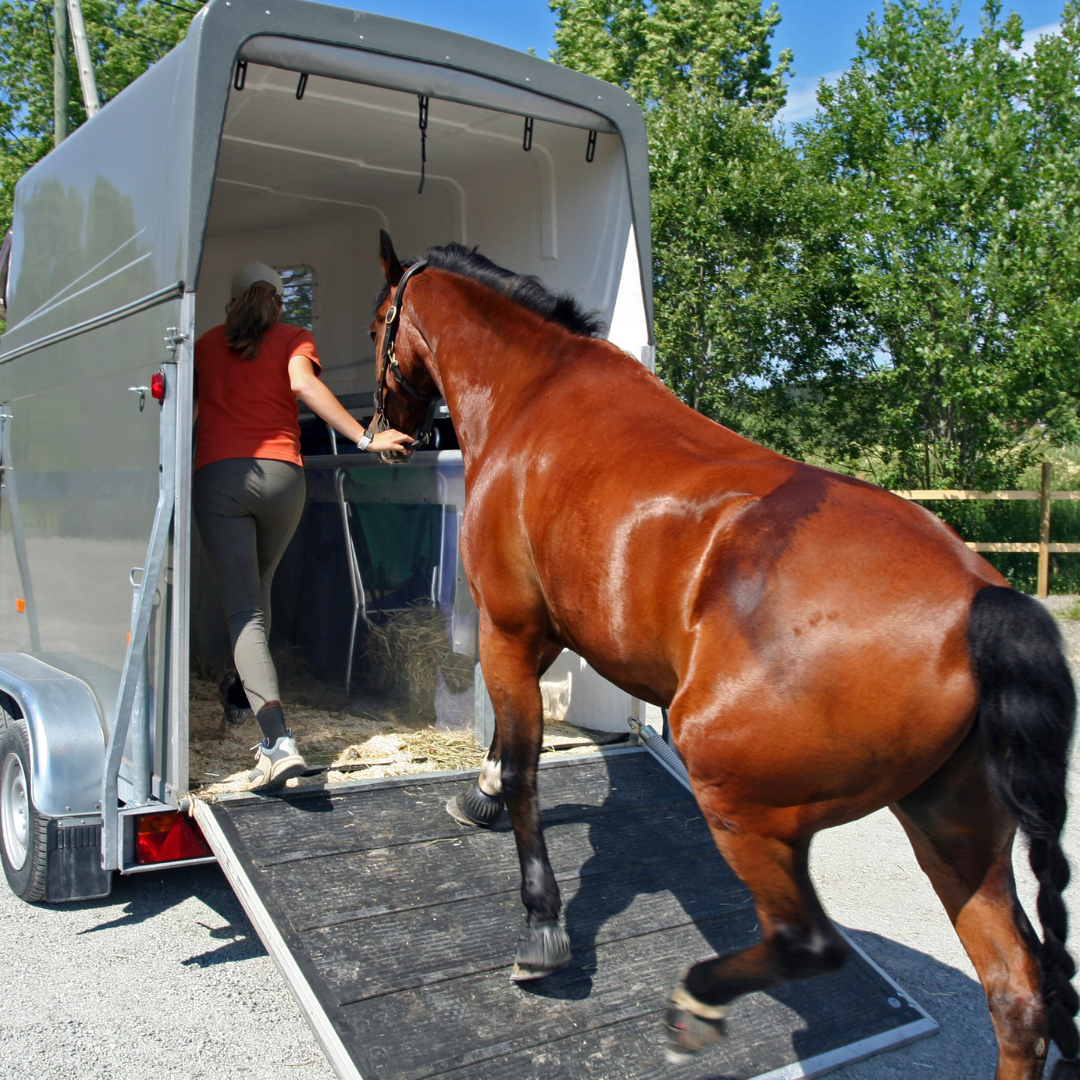
5. Transportation Of Horses
Transportation can be a significant source of stress for horses, particularly if they are not used to it.
Long-distance travel, loading into a trailer or horsebox, and unfamiliar surroundings can cause anxiety and physical discomfort, leading to a range of negative effects on the horse's well-being.
One of the primary sources of stress associated with transportation is the physical discomfort that horses may experience during travel.
Horses can be sensitive to the vehicle's movements, which can cause motion sickness, nausea, and dizziness.
They may also experience physical strain from standing for long periods, leading to muscle fatigue and stiffness.
Transportation can also be emotionally stressful for horses, particularly if they are not used to it.
The unfamiliar sights, sounds, and smells of a new environment can cause anxiety and fear, leading to increased levels of stress hormones such as cortisol.
This can have a range of negative effects on the horse's health and well-being, including a weakened immune system, decreased appetite, and weight loss.
6. Improper Handling Of Horses
Improper handling practices can significantly impact a horse's well-being, causing stress and trauma and leading to long-term physical and emotional harm.
This is particularly concerning given that horses are often used for high-performance activities such as racing, eventing, and show jumping, which require rigorous training and handling.
One of the primary ways improper handling can cause stress in horses is through excessive force or harsh training methods.
Horses subjected to physical punishment or aggressive training may become fearful or defensive, increasing stress and anxiety.
This can have a range of negative effects on the horse's physical health, including a weakened immune system, decreased appetite, and weight loss.
Improper handling can also lead to emotional trauma in horses, particularly if they experience prolonged or repeated exposure to stressful situations.
Horses subjected to abusive or neglectful handling may develop post-traumatic stress disorder (PTSD), leading to long-term behavioural problems such as hyper-vigilance, aggression, and avoidance behaviours.
In addition to physical and emotional harm, improper handling practices can impact a horse's ability to perform and compete effectively.
Stressed or traumatized horses may become less responsive, less willing to work, or more prone to accidents and injuries, leading to decreased performance and diminished results.

7. Environmental Enrichment
Environmental enrichment is an essential aspect of horse care, helping to promote mental and physical stimulation and prevent boredom, frustration, and stress.
Like all animals, horses have complex cognitive and behavioural needs that require a range of environmental stimuli to keep them engaged and healthy.
One of the primary benefits of environmental enrichment is that it provides horses with opportunities to engage in natural behaviours such as grazing, socializing, and exploring their environment.
This can help reduce stress and promote positive mental and physical health, as horses can engage in natural and fulfilling activities.
Environmental enrichment can take many forms, including providing access to pasture, socialization with other horses, and opportunities for play and exercise.
Horses may also benefit from giving novel objects or materials to explore, such as balls, cones, or scented toys, which can help stimulate their senses and encourage exploration and curiosity.
8. Management Practices
Proper management practices are crucial for minimizing stress in horses. Overcrowding is one of the most common causes of stress in horses, as it can lead to social tension, competition for resources, and an increased risk of injury.
Providing enough space and resources for each horse and separating horses that do not get along can help alleviate these issues.
Poor hygiene can also contribute to stress, as dirty living conditions can increase disease risk and parasites.
Providing clean water, regular manure removal, and a clean living environment can help reduce the risk of health problems and stress.
Feeding and watering practices are also important for minimizing stress. Horses should always have access to clean water, and their diets should be balanced and appropriate for their age, activity level, and health status.
Inadequate feeding or watering can lead to malnutrition and dehydration, which can cause various physical and behavioural problems.
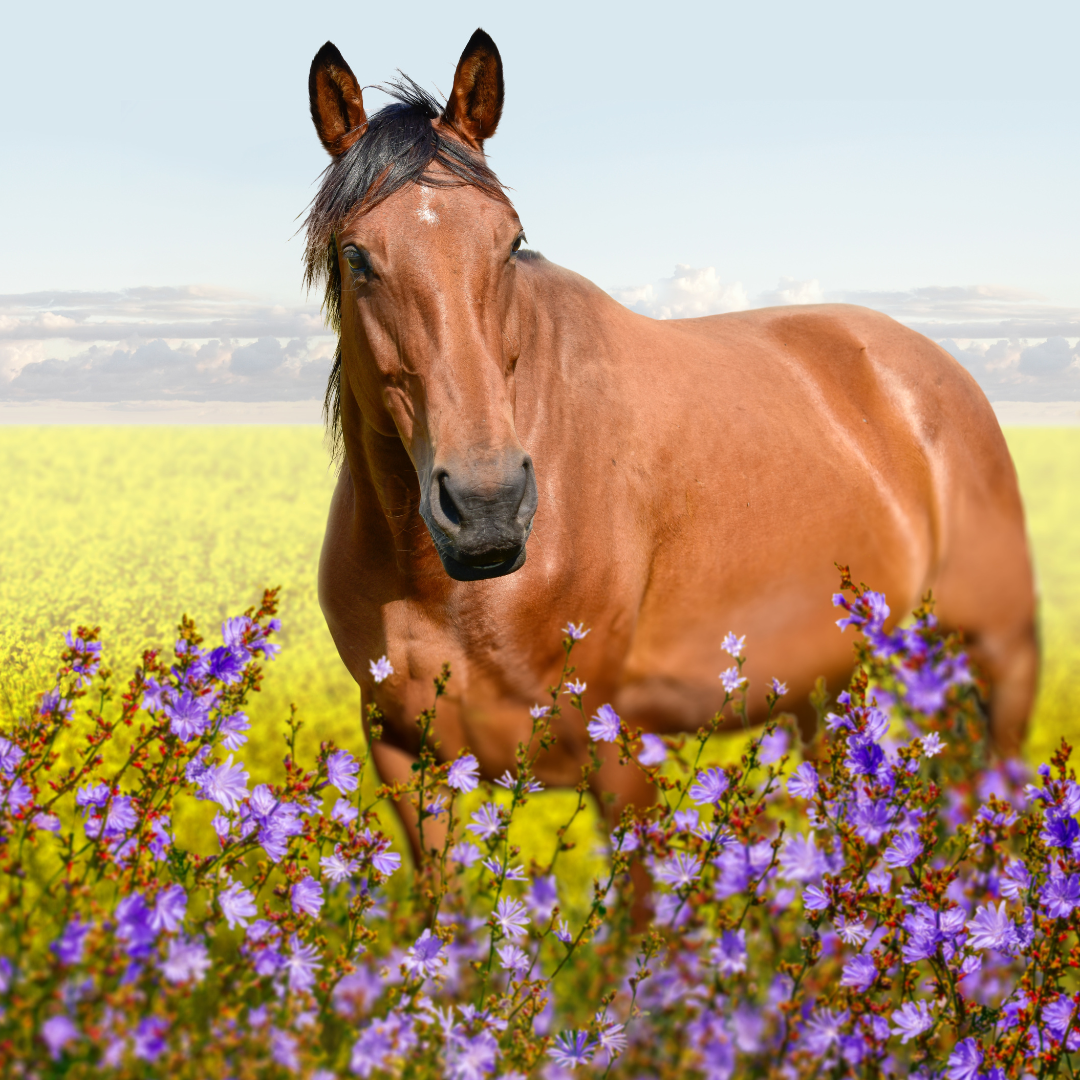
Effects Of Stress On Horses
1. Behavioural Changes
Stress can significantly impact a horse's behaviour and emotional well-being. Horses are highly social animals that are sensitive to changes in their environment.
Various factors can cause horses to become stressed, including changes in their routine, exposure to new stimuli, or social conflict with other horses.
Restlessness is one common behavioural change that horses may exhibit when they are stressed.
This can manifest as pacing, circling, or pawing the ground. Horses may also become unable to stand still or shift their weight from one leg to another.
Aggression is another common response to stress in horses. They may become aggressive towards other animals or people, harming the horse and those around it. This behaviour can manifest as kicking, biting, or charging at others.
Avoidance is another common behavioural response to stress. Horses may try to avoid certain situations or stimuli that are causing them stress, such as refusing to enter a trailer or attempting to bolt when ridden. They may also become more skittish or easily spooked, making them difficult to handle.
2. Physical Changes
Stress can have significant biological effects on horses, affecting their overall health and well-being.
These effects can manifest in various ways, including decreased appetite, weight loss, weakened immune system, and gastrointestinal problems like colic and ulcers.
One of the most common physical changes associated with stress in horses is a decreased appetite, which can lead to weight loss over time.
When horses are under pressure, they may become less interested in eating or have difficulty digesting their food, which can cause them to lose weight.
Stress can also weaken a horse's immune system, making them more susceptible to illness and disease.
This can be particularly problematic for horses already dealing with health issues or injuries, as stress can exacerbate these conditions.
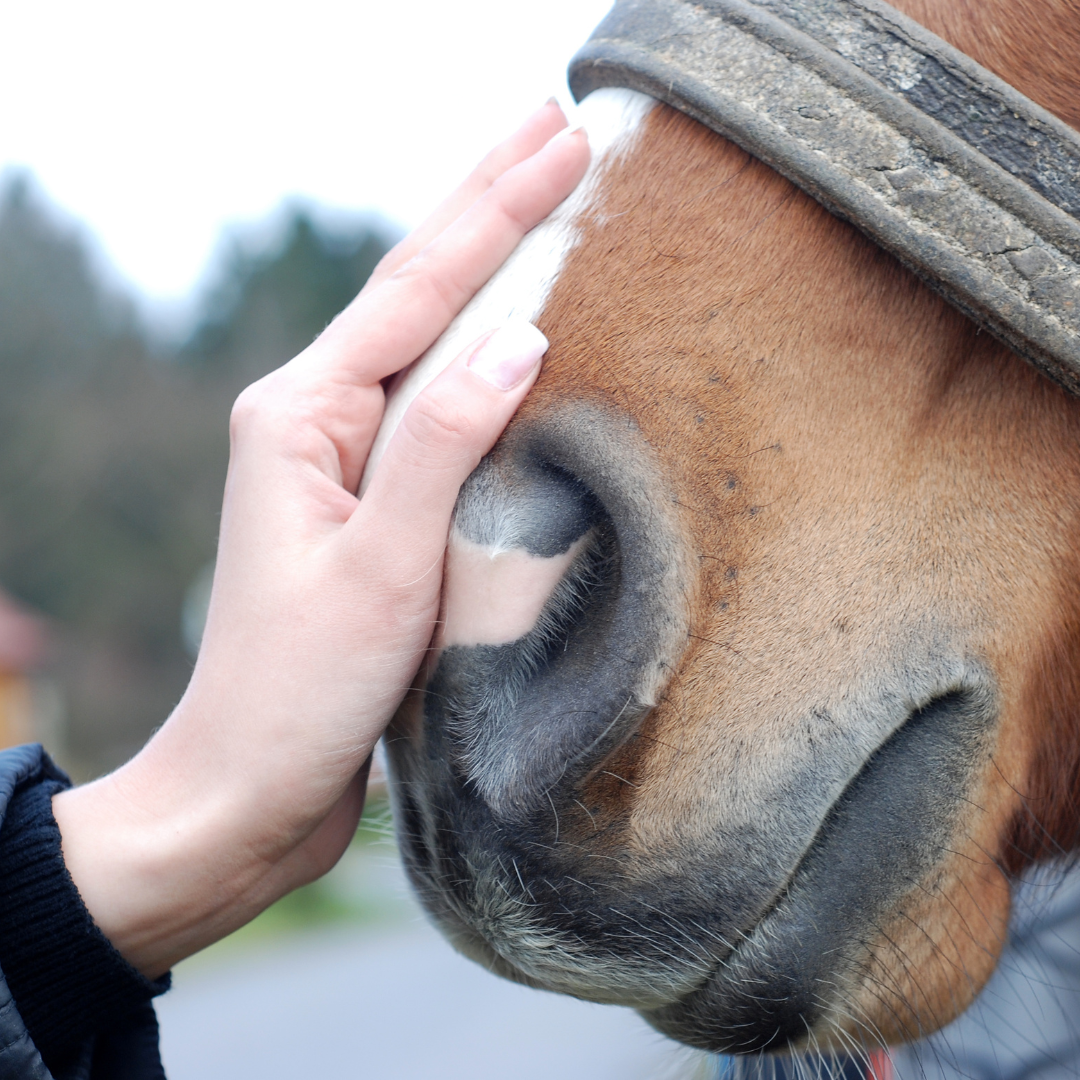
3. Reduced Performance
Chronic stress can significantly impact a horse's performance, affecting its responsiveness, willingness to work, and overall performance.
This can be a major concern for horse owners, trainers, and riders who rely on their horses for various equestrian disciplines, such as racing, show jumping, dressage, and eventing.
One of the primary ways stress can impact a horse's performance is by reducing its responsiveness.
Horses under stress may become more anxious, tense, or distracted, making it more challenging for riders to communicate with them effectively.
This can result in slower response times, missed cues, and a general lack of cooperation between horse and rider.
Stress can also impact a horse's willingness to work, causing them to become less motivated or enthusiastic about their training or competition.
Horses under chronic stress may exhibit signs of fatigue or burnout, becoming less interested in performing to the best of their ability.
This can be particularly problematic for competitive horses, as reduced performance can result in lower scores or slower times, potentially affecting their career prospects.
Another way stress can impact a horse's performance is by compromising its physical health.
Chronic stress can lead to physical changes in the body, such as weight loss, weakened immune system, and gastrointestinal problems, which can further impact a horse's ability to perform.
4. Increased Risk Of Injury
Stress can significantly increase the risk of injury in horses, making them more susceptible to accidents and physical harm.
This is a significant concern for horse owners, trainers, and riders who rely on their animals for various equestrian disciplines, such as racing, eventing, and show jumping.
One of the primary ways stress can increase injury risk in horses is by making them more prone to accidents.
Horses under stress may become more anxious, agitated, or distracted, making them more likely to spook, bolt, or behave unpredictably.
This can increase the risk of accidents, such as falls, collisions, or getting caught in fences or other obstacles.
Stress can also impact a horse's coordination and balance, making them more likely to trip or stumble.
This is because stress can affect a horse's proprioception or ability to sense its body position and movements in space.
When this sense is compromised, horses may struggle to navigate uneven terrain or obstacles, increasing their risk of injury.
Another way stress can increase injury risk in horses is by compromising their physical health.
Chronic stress can lead to physical changes in the body, such as weight loss, a weakened immune system, and gastrointestinal problems, making horses more vulnerable to injuries and illnesses.

Conclusion
The effects of stress can manifest in various ways, such as reduced performance, behavioural changes, and increased susceptibility to illness.
Horse owners and caregivers should be aware of potential causes of stress and take steps to minimize them.
This may include providing a consistent routine, ensuring pasture or turnout time access, and minimizing exposure to stressful situations.
Additionally, providing opportunities for socialization, exercise, and mental stimulation can reduce stress and promote overall health and well-being.
Ultimately, by understanding the causes and effects of stress in horses and taking proactive measures to address them, horse owners and caregivers can help to ensure that their animals lead happy, healthy lives.
I trust you enjoyed this article about the Causes And Effects Of Stress In Horses. Please stay tuned for more blog posts soon.
JeannetteZ
Your Opinion Is Important To Me
Do you have thoughts, ideas, or questions? I would love to hear from you. Please leave me your questions, experience, and remarks about this article on the Causes And Effects Of Stress In Horses in the comments section below. You can also email me at Jeannette@Close-To-Nature.org.
Disclosure
This post may contain affiliate links. I earn from qualifying purchases as an Amazon Associate and other affiliate programs. Please read my full affiliate disclosure.
You might also enjoy these blog posts:
Does Drinking Tea Reduce Stress?

